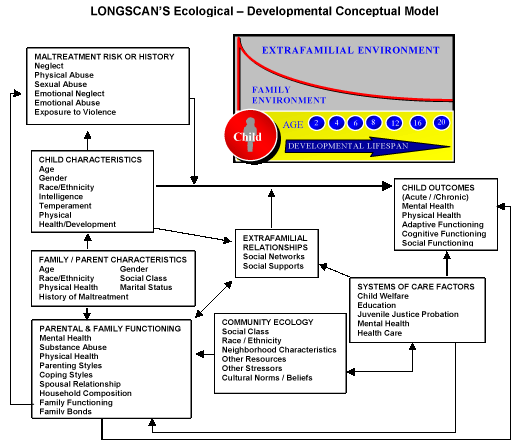 |
|
LONGSCAN Ecological-Developmental Framework The longitudinal design of the project reflects the developmental changes in risk and protective factors that occur as children grow and change from early childhood through young adult years. Because factors and processes influencing resilience can be instrumental in intervention programs, LONGSCAN investigators are committed to the investigation of outcomes suggesting resilience as well as poorer outcomes. LONGSCAN's conceptualization of the ecological-developmental model guides data collection as the children experience changing relationships with their social ecology over time.
|
|
|||
